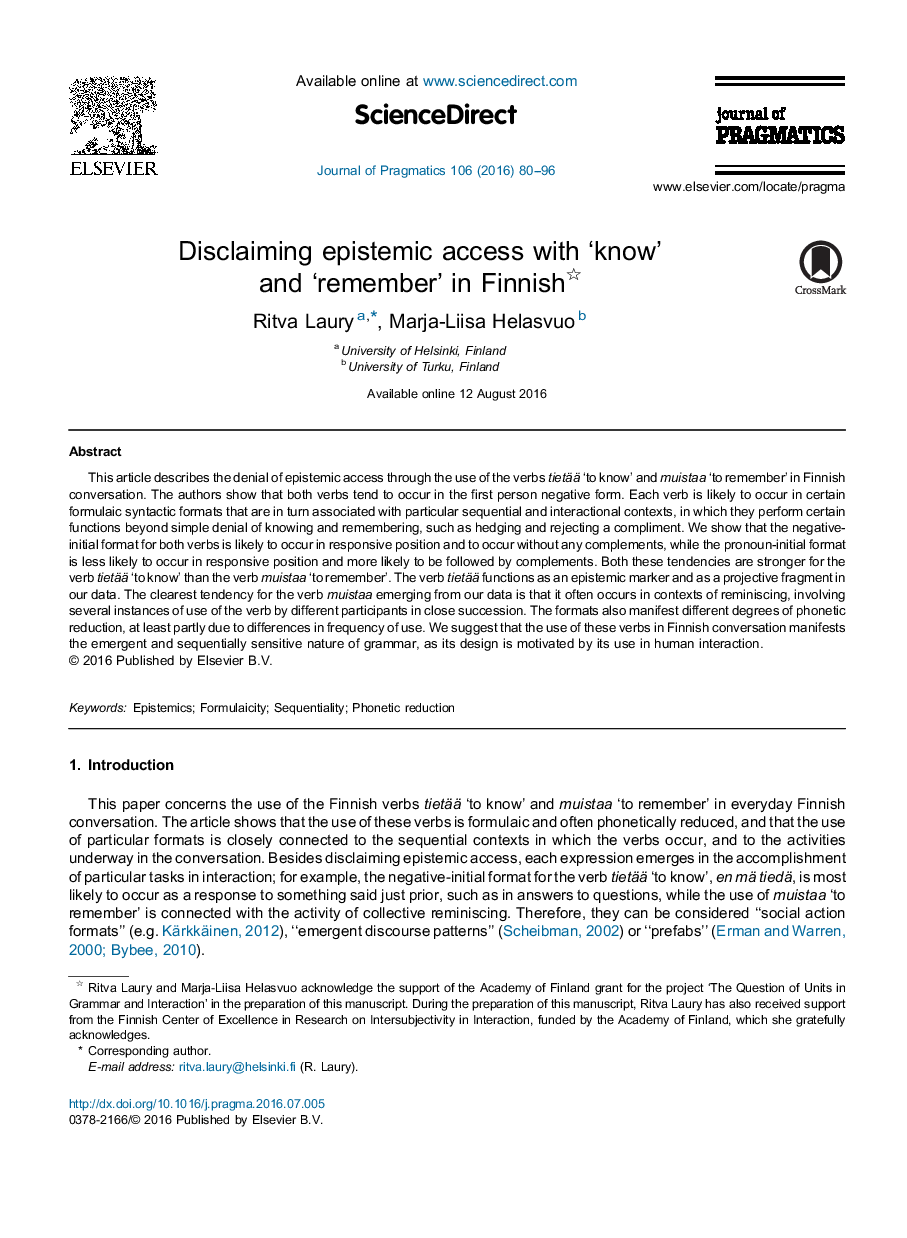| کد مقاله | کد نشریه | سال انتشار | مقاله انگلیسی | نسخه تمام متن |
|---|---|---|---|---|
| 5042755 | 1474694 | 2016 | 17 صفحه PDF | دانلود رایگان |
- Tietää 'to know' and muistaa 'to remember' tend to occur in the first person negative.
- Word order and complementation patterns are sensitive to sequential position.
- Negative-initial format tends to occur in responsive position without complements.
- Pronoun-initial format less common in responsive position, but has more complements.
- Formats manifest different degrees of phonetic reduction.
This article describes the denial of epistemic access through the use of the verbs tietää 'to know' and muistaa 'to remember' in Finnish conversation. The authors show that both verbs tend to occur in the first person negative form. Each verb is likely to occur in certain formulaic syntactic formats that are in turn associated with particular sequential and interactional contexts, in which they perform certain functions beyond simple denial of knowing and remembering, such as hedging and rejecting a compliment. We show that the negative-initial format for both verbs is likely to occur in responsive position and to occur without any complements, while the pronoun-initial format is less likely to occur in responsive position and more likely to be followed by complements. Both these tendencies are stronger for the verb tietää 'to know' than the verb muistaa 'to remember'. The verb tietää functions as an epistemic marker and as a projective fragment in our data. The clearest tendency for the verb muistaa emerging from our data is that it often occurs in contexts of reminiscing, involving several instances of use of the verb by different participants in close succession. The formats also manifest different degrees of phonetic reduction, at least partly due to differences in frequency of use. We suggest that the use of these verbs in Finnish conversation manifests the emergent and sequentially sensitive nature of grammar, as its design is motivated by its use in human interaction.
Journal: Journal of Pragmatics - Volume 106, December 2016, Pages 80-96
